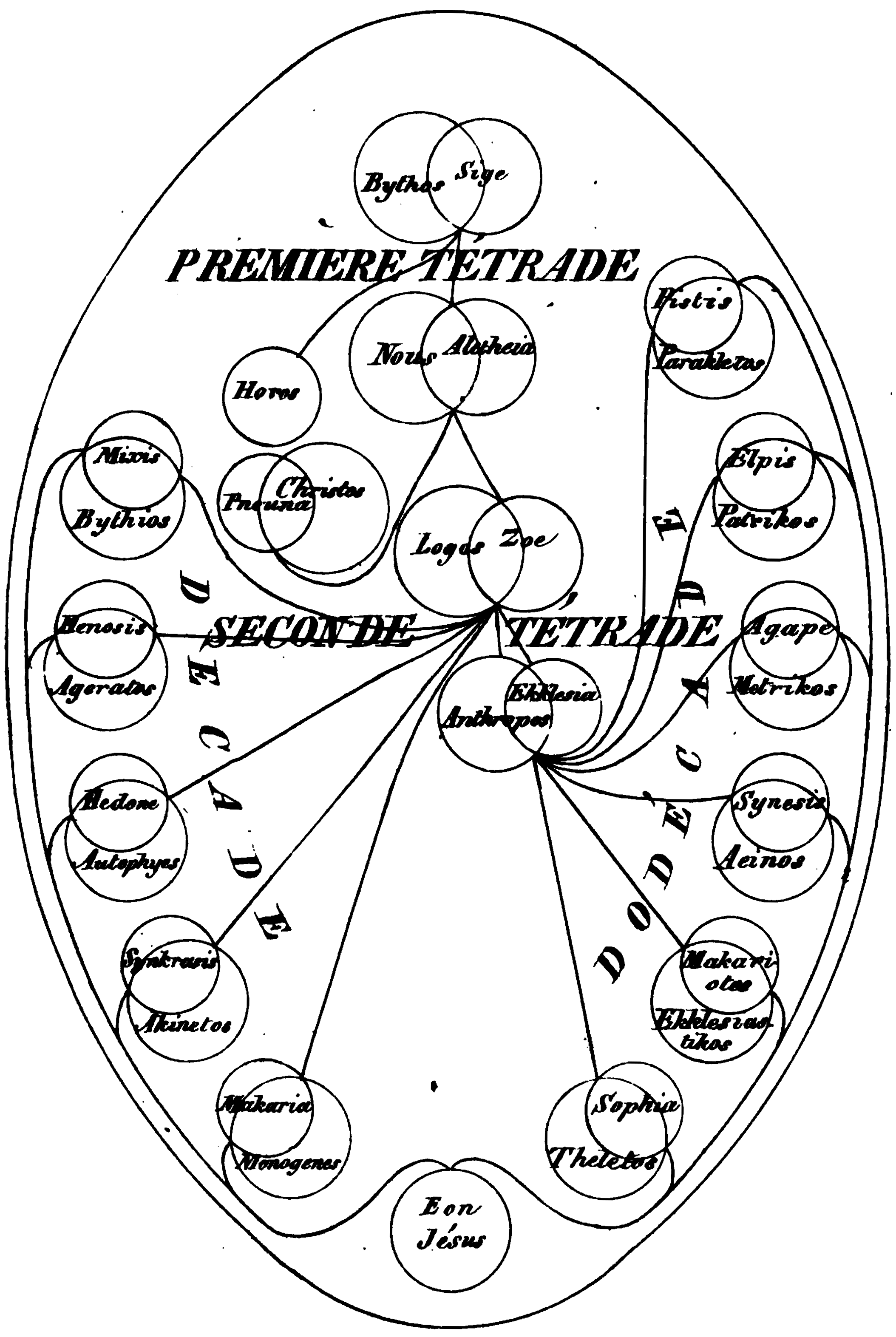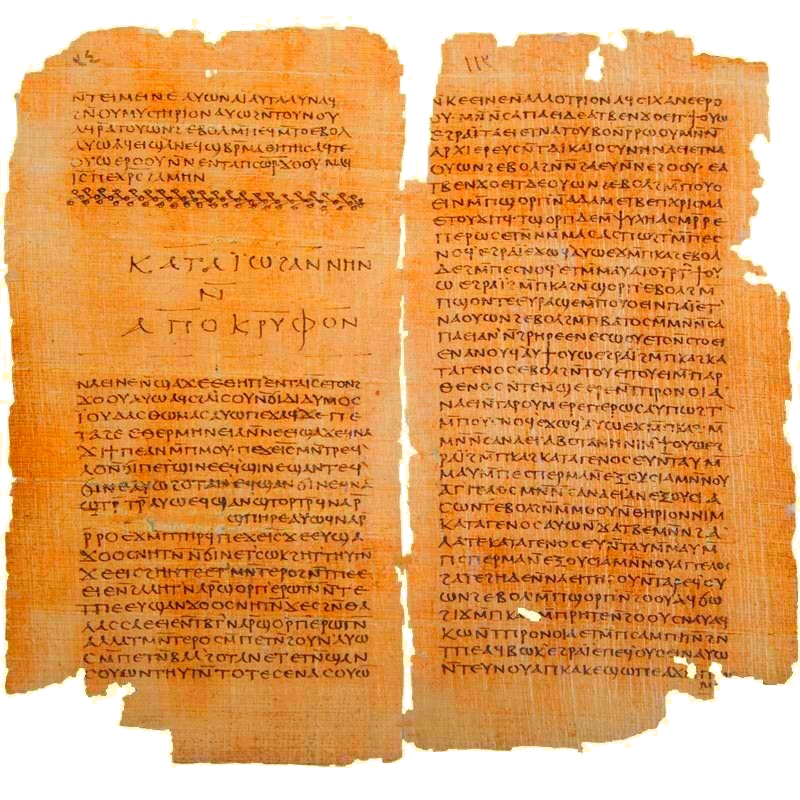|
Adversus Valentinianos
''Adversus Valentinianos'', or ''Against the Valentinians'', is a famous refutation of Valentinianism by Tertullian, an orthodox contemporary of the Gnostics and one of the first to investigate them. The work satirized the bizarre elements that appear in Gnostic mythology, ridiculing the Gnostics for creating elaborate cosmologies, with multi-storied heavens like apartment houses. Though an enemy of Valentinus, Tertullian nevertheless spoke of him as a brilliant and eloquent man. Tertullian claims that Valentinus refused to submit himself to the superior authority of the bishop of Rome because he wanted to become bishop himself. In Tertullian's version of events, when another man was chosen to be bishop, Valentinus was filled with envy and frustrated ambition and separated himself from the church to found a rival group of his own. Tertullian's story follows a typical polemic against heresy, maintaining that envy and ambition lead heretics to deviate from the true faith, and for th ... [...More Info...] [...Related Items...] OR: [Wikipedia] [Google] [Baidu] |
Valentinianism
Valentinianism was one of the major Gnostic Christian movements. Founded by Valentinus in the 2nd century AD, its influence spread widely, not just within Rome but also from Northwest Africa to Egypt through to Asia Minor and Syria in the East. Later in the movement's history it broke into an Eastern and a Western school. Disciples of Valentinus continued to be active into the 4th century AD, after the Roman Emperor Theodosius I issued the Edict of Thessalonica (380 AD), which declared Nicene Christianity as the State church of the Roman Empire. The doctrine, practices and beliefs of Valentinus and the Gnostic movement that bore his name were condemned as heretical by proto-orthodox Christian leaders and scholars. Prominent Church Fathers such as Irenaeus of Lyons and Hippolytus of Rome wrote against Gnosticism. Because early church leaders encouraged the destruction of Gnostic texts, most evidence for the Valentinian theory comes from its critics and detractors, most notably ... [...More Info...] [...Related Items...] OR: [Wikipedia] [Google] [Baidu] |
Tertullian
Tertullian (; la, Quintus Septimius Florens Tertullianus; 155 AD – 220 AD) was a prolific early Christian author from Carthage in the Roman province of Africa. He was the first Christian author to produce an extensive corpus of Latin Christian literature. He was an early Christian apologist and a polemicist against heresy, including contemporary Christian Gnosticism. Tertullian has been called "the father of Latin Christianity" and "the founder of Western theology". Tertullian originated new theological concepts and advanced the development of early Church doctrine. He is perhaps most famous for being the first writer in Latin known to use the term ''trinity'' (Latin: ''trinitas''). Tertullian was never recognized as a saint by the Eastern or Western Catholic churches. Several of his teachings on issues such as the clear subordination of the Son and Spirit to the Father, as well as his condemnation of remarriage for widows and of fleeing from persecution, contr ... [...More Info...] [...Related Items...] OR: [Wikipedia] [Google] [Baidu] |
Gnosticism
Gnosticism (from grc, γνωστικός, gnōstikós, , 'having knowledge') is a collection of religious ideas and systems which coalesced in the late 1st century AD among Jewish Jews ( he, יְהוּדִים, , ) or Jewish people are an ethnoreligious group and nation originating from the Israelites Israelite origins and kingdom: "The first act in the long drama of Jewish history is the age of the Israelites""The ... and early Christian sects. These various groups emphasized personal spiritual knowledge (''gnosis'') above the orthodox teachings, traditions, and authority of religious institutions. Gnostic cosmogony generally presents a distinction between a supreme, hidden God and a malevolent demiurge, lesser divinity (sometimes associated with the Yahweh of the Old Testament) who is responsible for creating the nature, material universe. Consequently, Gnostics considered material existence flawed or evil, and held the principal element of salvation to be direct ... [...More Info...] [...Related Items...] OR: [Wikipedia] [Google] [Baidu] |
Valentinus (Gnostic)
Valentinus (also spelled Valentinius; – ) was the best known and, for a time, most successful early Christian Gnostic theologian. He founded his school in Rome. According to Tertullian, Valentinus was a candidate for bishop but started his own group when another was chosen. Valentinus produced a variety of writings, but only fragments survive, largely those quoted in rebuttal arguments in the works of his opponents, not enough to reconstruct his system except in broad outline. His doctrine is known only in the developed and modified form given to it by his disciples, the Valentinians. He taught that there were three kinds of people, the spiritual, psychical, and material; and that only those of a spiritual nature received the ''gnosis'' (knowledge) that allowed them to return to the divine Pleroma, while those of a psychic nature (ordinary Christians) would attain a lesser or uncertain form of salvation, and that those of a material nature were doomed to perish. Valentinu ... [...More Info...] [...Related Items...] OR: [Wikipedia] [Google] [Baidu] |
Elaine Pagels
Elaine Pagels, née Hiesey (born February 13, 1943), is an American historian of religion. She is the Harrington Spear Paine Professor of Religion at Princeton University. Pagels has conducted extensive research into early Christianity and Gnosticism. Her best-selling book ''The Gnostic Gospels'' (1979) examines the divisions in the early Christian church, and the way that women have been viewed throughout Jewish history and Christian history. Modern Library named it as one of the 100 best books of the twentieth century. Early life and education Pagels (pronounced Paygulls) was born February 13, 1943, in California. She is the daughter of Stanford University botanist William Hiesey. According to Pagels, she has been fascinated with the Gospel of John since her youth. She found it to be "the most spiritual of the four gospels". After joining an Evangelical church at the age of 13, she quit when the church announced that a Jewish friend of hers who had been killed in a car crash wo ... [...More Info...] [...Related Items...] OR: [Wikipedia] [Google] [Baidu] |



